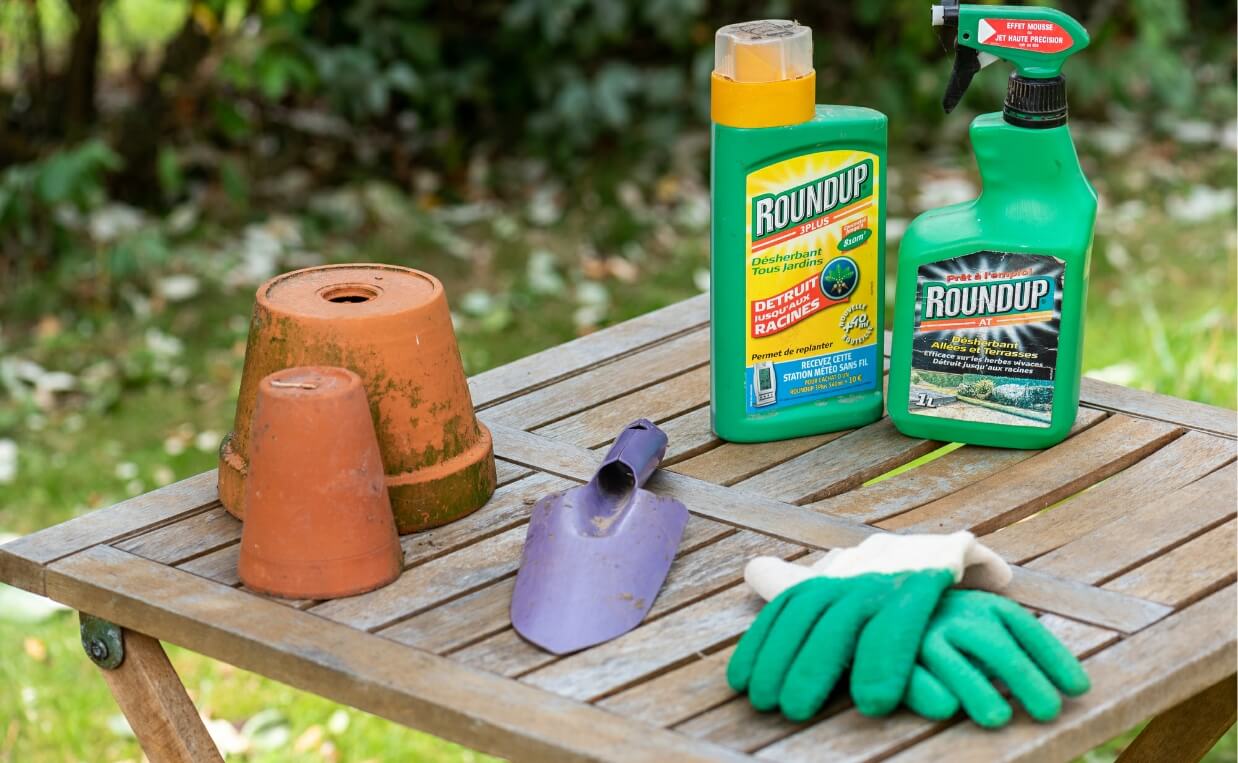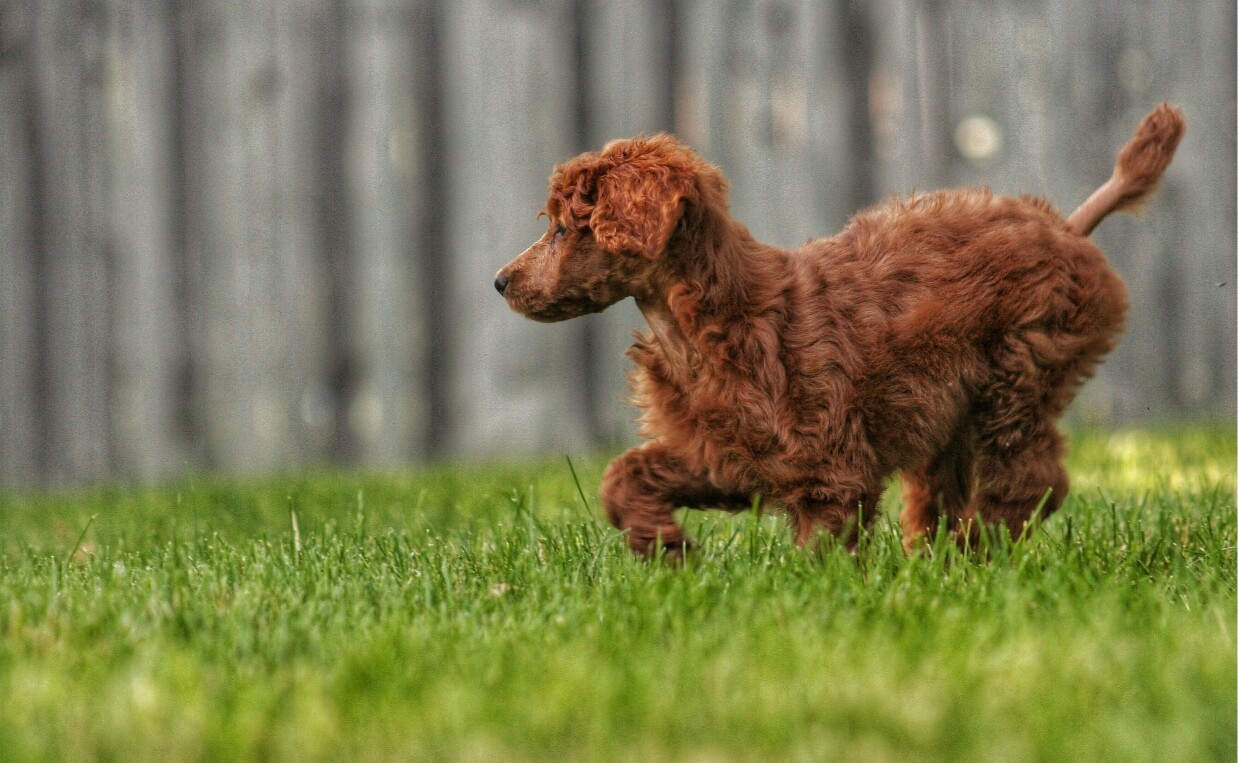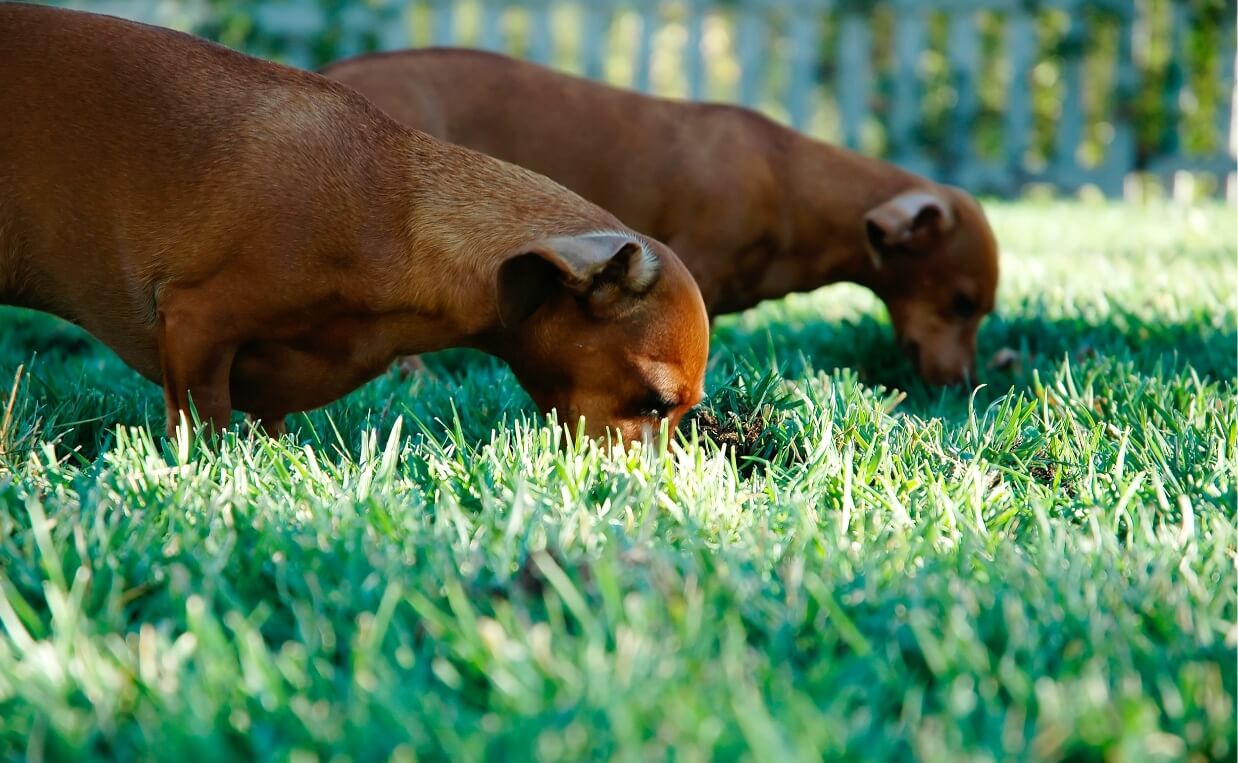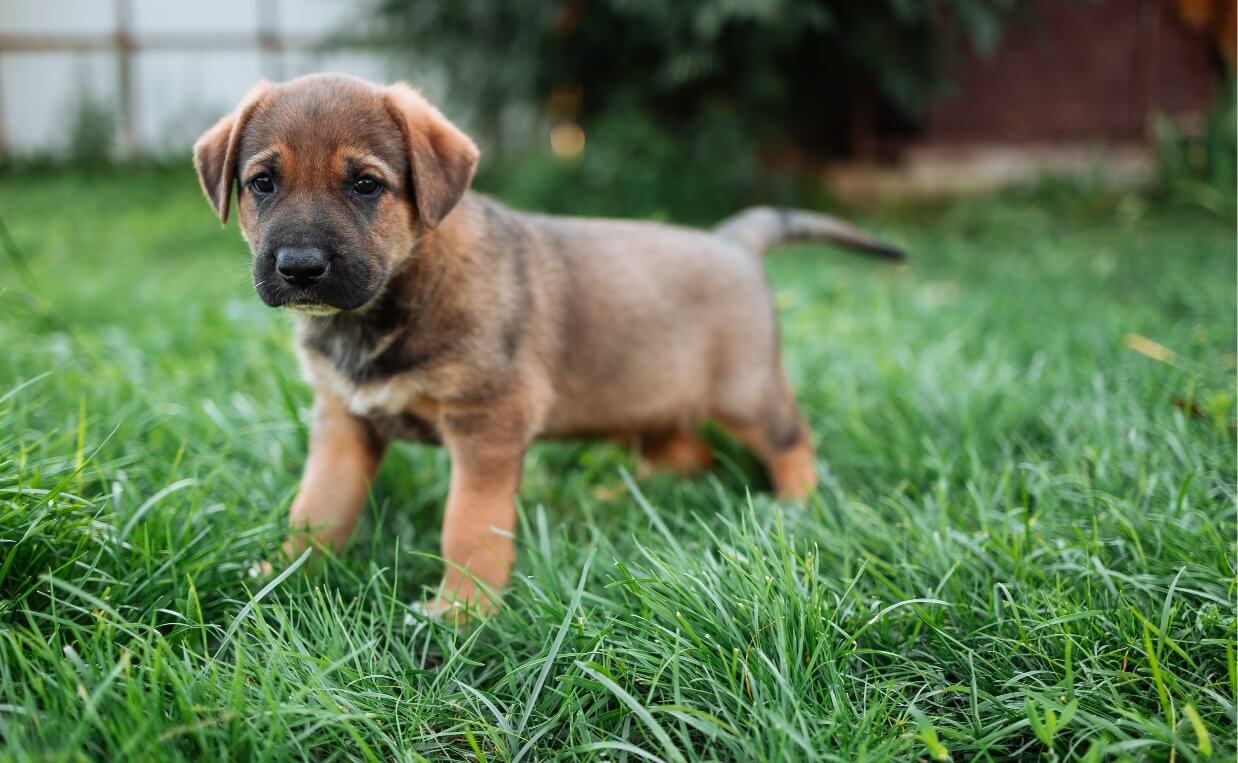
Many pet parents start working on their yards during springtime with the goal of creating a fun play yard for themselves and their dogs. However, it’s important for dog parents to realize some yard care products, specifically weed killer, can be dangerous, if not lethal, to their pets.
What’s good and bad for your dog when it comes to pesticides and weed killer? Keep reading to find out more about lawn care and how you can keep your dog safe while still enjoying a weed-free yard.
RoundUp is a popular weed killer used by many homeowners, farmers, and landscapers for decades. It is effective in killing a wide range of weeds and is widely available in stores. However, there has been a growing concern about the safety of RoundUp, particularly for dogs.
In this blog post, we will explore the question of whether RoundUp weed killer is safe for dogs.
What is RoundUp?
RoundUp is a herbicide first introduced by Monsanto in 1974. It contains glyphosate, a chemical compound that targets weeds by interfering with their growth and photosynthesis processes. RoundUp is a systemic herbicide, meaning it is absorbed by the plant and transported throughout its tissues, killing the entire plant.

Is RoundUp Safe for Dogs?
Glyphosate, the active ingredient RoundUp, has been the subject of much controversy and debate over the years. Some studies have suggested it may be a carcinogen, while others have concluded it is safe for humans and the environment when used properly.
However, when it comes to dogs, there is some evidence to suggest glyphosate may be harmful. Dogs are more likely to be exposed to RoundUp than humans because they spend more time outdoors and may come into direct contact with the herbicide. They may also ingest it by licking their paws or eating grass treated with RoundUp.
Several studies have found glyphosate exposure may be linked to an increased risk of cancer in dogs. One study published in Environmental Research found dogs with higher levels of glyphosate in their urine were more likely to develop lymphoma, a type of cancer that affects the lymphatic system.
Another study published in Science of the Total Environment found dogs exposed to glyphosate had higher levels of oxidative stress, a condition that can damage cells and lead to chronic diseases.
In addition to cancer, glyphosate exposure may also be linked to other health problems in dogs. For example, may also be linked to other health problems in dogs. For example, a study published in Frontiers in Veterinary Science found dogs exposed to glyphosate had lower levels of certain beneficial gut bacteria, which could affect their overall health and immune function.

What To Do If You Suspect Your Dog Has Come Into Contact with RoundUp
If you suspect your dog has come into contact with RoundUp, it is important to act quickly to minimize their exposure and reduce the risk of harm. The first step is to remove your dog from the area where the RoundUp was applied and to prevent them from licking or ingesting any of the herbicide. If your dog has come into contact with RoundUp or another weed killer containing glyphosate, wash your dog’s fur and skin with soap and water to remove any residual chemicals.
Next, you should monitor your dog for any signs of illness or adverse effects. Symptoms of RoundUp exposure in dogs may include vomiting, diarrhea, lethargy, loss of appetite, and difficulty breathing. If you notice any of these symptoms, you should contact your veterinarian immediately. They may recommend further treatment or monitoring to ensure your dog recovers safely. Overall, it is important to be proactive and take steps to protect your dog’s health if you suspect they have come into contact with RoundUp.

How to Safely Use RoundUp Around Dogs
If you decide to use RoundUp weed killer around your dog, there are some precautions you can take to minimize their exposure and reduce the risk of harm:
-
Keep your dog away from treated areas
After applying RoundUp, keep your dog away from the treated area until the herbicide has dried completely. This may take several hours, so be sure to plan accordingly.
-
Use a barrier
If you are applying RoundUp in an area where your dog frequently plays or walks, consider using a physical barrier to prevent them from coming into contact with the herbicide. This could be a fence, a tarp, or even a piece of cardboard.
-
Wear protective clothing
When applying RoundUp, wear protective clothing, including long sleeves, pants, gloves, and goggles. This will help to prevent skin and eye irritation and minimize your own exposure to the herbicide.
-
Follow the label instructions
Always read and follow the label instructions when using RoundUp. This includes diluting the herbicide properly, applying it at the recommended rate, and storing it safely.
-
Consider alternative weed control methods
If you are concerned about the safety of RoundUp, consider using alternative weed control methods that are safer for dogs, such as hand weeding, mulching, or using a propane torch. Other weed killer alternatives include sprays made with vinegar, botanical oils, and soap to kill weeds in your yard.
There are also “natural” pet-friendly weed killers, which can still be used to kill annual weeds and the top growth of perennial ones. Although these are natural products, keep your dog off treated area until the spray has dried, such as:
- RHS Glyphosate Free Weed Killer
- Weedkil Glyphosate-Free Weed Killer
- Ecofective Weed and Moss Killer

Final Thoughts
While there is evidence showing glyphosate, the active ingredient in RoundUp, can be harmful to dogs, it is possible to use RoundUp safely around your pets if you take the necessary precautions. If you are concerned, consider finding alternative weed control methods.
Do you think RoundUp is safe to use in your yard? Please share your opinion by leaving a comment below.

 9 Common Eye Issues in Dogs
9 Common Eye Issues in Dogs Pancreatitis in Dogs – Symptoms, Causes and Treatment
Pancreatitis in Dogs – Symptoms, Causes and Treatment How to Help Your Dog Get Rid of Dandruff
How to Help Your Dog Get Rid of Dandruff Guide to Choosing the Best Dog Treats for Your Dog
Guide to Choosing the Best Dog Treats for Your Dog Help Your Dog Fight Seasonal Allergies
Help Your Dog Fight Seasonal Allergies






I water trees for a friend. Last year,a week after they treated their yard with round up my dog died. As far as I know she had no other issues.
I believe Round Up killed my dog.
I’m so sorry to hear this. 🙁 Thank you for sharing this tragedy with the Canine Campus community. Perhaps it will help another dog.
My husband has sprayed the lawn with roundup he has let our puppy on there after it had dried . The pup was walking and laying on it … he has a habit of licking his feet …. he soon after became violently ill
Could he become from the spray this way ?
If your puppy has become violently ill he or she should be seen at an emergency veterinary hospital. Be sure to let them know about your puppy’s exposure to RoundUp. Thank you for sharing your experience and I hope your puppy is feeling better by now!
People are impressed by the golf course style lawn . I’ve been down that route myself but I soon realised the true cost of everything looking pristine . I now never spray , plenty of weeds nettles , flowers, also foxes , deer , all sorts of insects and birds , my pets . The poison called round up is responsible for a lot of misery in humans and animals wild or not. Rat poison and slug pellets are up there with it. Its likely in our countryside streams sadly.
Thank you for your insight and for visiting our blog! We have a responsibility to wildlife and our pets alike. Hope to see you back again soon!